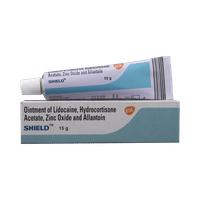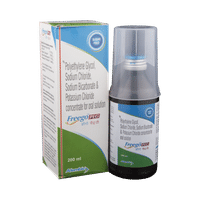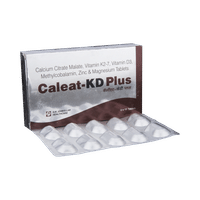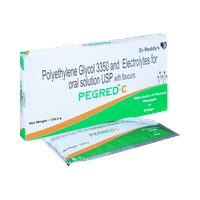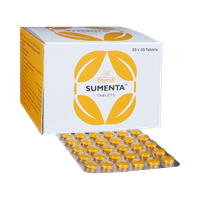Rs.125for 1 strip(s) (10 Tablet pr each)
food interaction for Prolomet AM
alcohol interaction for Prolomet AM
pregnancy interaction for Prolomet AM
lactation interaction for Prolomet AM
food
alcohol
pregnancy
lactation
Prolomet AM 25 Tablet PR may be taken with or without food, but it is better to take it at a fixed time.
None
None
CAUTION
It is unsafe to consume alcohol with Prolomet AM 25 Tablet PR.
UNSAFE
Prolomet AM 25 Tablet PR may be unsafe to use during pregnancy. Although there are limited studies in humans, animal studies have shown harmful effects on the developing baby. Your doctor will weigh the benefits and any potential risks before prescribing it to you. Please consult your doctor.
CONSULT YOUR DOCTOR
Prolomet AM 25 Tablet PR is probably unsafe to use during breastfeeding. Limited human data suggests that the drug may pass into the breastmilk and harm the baby.
CONSULT YOUR DOCTOR
SALT INFORMATION FOR Prolomet AM
Amlodipine(5mg)
Uses
Amlodipine is used in the treatment of Angina (heart-related chest pain), Hypertension (high blood pressure), Arrhythmia, hypertensive emergency, subarachnoid haemorrhage and anal fissure.
How it works
Amlodipine is a calcium channel blocker. In high blood pressure, it normalizes the blood pressure by relaxing the blood vessels to reduce the pressure on them, thereby improving the blood flow in the body. The enhanced blood flow in the body, further relaxes the heart muscles by reducing the workload on the heart. It also improves the oxygen flow in the body, thereby, preventing any heart-related chest pain.
Common side effects
Headache, Nausea, Abdominal pain, Flushing (sense of warmth in the face, ears, neck and trunk), Dizziness, Palpitations, Edema (swelling), Hypotension (low blood pressure), Chest pain, Fainting, Muscle cramp, Visual disturbance, Shortness of breath, Change in bowel habits, Weakness, Insomnia (difficulty in sleeping), Mood changes, Depression, Tremors, Taste change, Hypoesthesia (decreased sensitivity to stimuli), Paresthesia (tingling or pricking sensation), Arrhythmia (irregular heartbeats), Vomiting, Dryness in mouth, Rash, Muscle pain, Back pain, Frequent urge to urinate, Impotence, Breast enlargement in male, Decreased white blood cell count (lymphocytes), Low blood platelets, Allergic reaction, Increased glucose level in blood, Confusion, Hypertonia (increased muscle tone), Pancreatic inflammation, Gingival hyperplasia, Hepatitis (viral infection of liver), Angioedema (swelling of deeper layers of skin), Stevens-Johnson syndrome
Metoprolol Succinate(25mg)
Uses
Metoprolol Succinate is used in the treatment of Hypertension (high blood pressure), Angina (heart-related chest pain), Arrhythmia, heart attack and migraine.
How it works
Metoprolol Succinate is a long-acting beta blocker that works specifically on the heart. It works by slowing down the heart rate and makes the heart more efficient at pumping blood around the body.
Common side effects
Cold extremities, Headache, Dizziness, Slow heart rate, Rash, Depression, Diarrhea, Tiredness, Shortness of breath, Gastrointestinal disturbance, Hypotension (low blood pressure), Stroke, Chest pain, Confusion, Short-term memory loss, Sleepiness, Paresthesia (tingling or pricking sensation), Blurred vision, Sexual dysfunction, Ringing in ear, Hair loss, Agranulocytosis (deficiency of granulocytes in the blood), Dry eye, Worsening of psoriasis, Sweating, Photosensitivity, Taste change, Nightmares
SUBSTITUTES FOR Prolomet AM
22 Substitutes
22 Substitutes
Sorted By
 Rs. 124save 2% more per Tablet PR
Rs. 124save 2% more per Tablet PR Rs. 207.75pay 8% more per Tablet PR
Rs. 207.75pay 8% more per Tablet PR Rs. 68.20save 47% more per Tablet PR
Rs. 68.20save 47% more per Tablet PR Rs. 126save 1% more per Tablet PR
Rs. 126save 1% more per Tablet PR Rs. 90.02save 31% more per Tablet PR
Rs. 90.02save 31% more per Tablet PR
Expert advice FOR Prolomet AM
- You have been prescribed Amlodipine to improve your blood pressure and/or to reduce the number and severity of angina attacks.
- Lowering blood pressure reduces the chance of future heart attack and stroke.
- Take it at the same time every day to help you remember to take it.
- A sudden drop in your blood pressure may occur, especially when you first start taking Amlodipine. To lower the chance of feeling dizzy or passing out, rise slowly if you have been sitting or lying down.
- It can cause ankle or foot swelling. To reduce the swelling, raise your legs while you are sitting down. Talk to your doctor if it does not go away.
- It may cause dizziness. Do not drive or perform any activity that requires mental focus until you know how Amlodipine affects you.
- Inform your doctor if you are pregnant, planning a pregnancy or breastfeeding.
- You have been prescribed Amlodipine to improve your blood pressure and/or to reduce the number and severity of angina attacks.
- Lowering blood pressure reduces the chance of future heart attack and stroke.
- Take it at the same time every day to help you remember to take it.
- A sudden drop in your blood pressure may occur, especially when you first start taking Amlodipine. To lower the chance of feeling dizzy or passing out, rise slowly if you have been sitting or lying down.
- It can cause ankle or foot swelling. To reduce the swelling, raise your legs while you are sitting down. Talk to your doctor if it does not go away.
- It may cause dizziness. Do not drive or perform any activity that requires mental focus until you know how Amlodipine affects you.
- Inform your doctor if you are pregnant, planning a pregnancy or breastfeeding.
Frequently asked questions FOR Prolomet AM
Amlodipine
Q. How long does it take for Amlodipine to work?
Amlodipine starts working on the day it is taken. However, it may take weeks to see the full effect. You should continue taking the medicine even if you feel better or if you do not notice any considerable difference. Consult your doctor if you have any concerns or you feel worse after taking the medicine.
Q. Does Amlodipine cause itching?
Amlodipine may cause itching in some patients, though it is an uncommon side effect. However, if you experience severe itching contact your doctor.
Q. Is Amlodipine bad for the kidneys?
No, there is no evidence that Amlodipine causes deterioration of kidney problems. Amlodipine can be used in normal doses in patients with kidney problems. In fact, its blood pressure-lowering effect, it helps to prevent injury to the kidneys due to hypertension.
Metoprolol Succinate
Q. How long does Metoprolol Succinate take to work?
The time taken by Metoprolol Succinate to start working varies from person to person. Usually, Metoprolol Succinate starts working within 15 minutes. However, in some patients, it may take up to 2 hours to start showing its beneficial effects. It starts acting slowly and the maximum or full effect is usually experienced within a span of 1 week. In case you do not feel any difference while taking Metoprolol Succinate, do not panic. The medicine exerts its beneficial effects when taken for a long time.
Q. Is taking Metoprolol Succinate dangerous?
Metoprolol Succinate is usually safe when taken as per the doctor’s prescription. This medicine exhibits dangerous effects if the medicine is stopped suddenly. Stopping the medicine suddenly can cause an abrupt increase in the heart rate and affect its activity, which can be dangerous for heart failure patients and can even lead to a heart attack in some patients. So, do not stop the medicine suddenly and take it for the prescribed duration.
Q. Does Metoprolol Succinate help you sleep better?
Metoprolol Succinate belongs to the beta-blockers class of medicine. Though their effect on sleep varies from person to person, it has been found that these medicines are known to alter the sleep pattern and disturb sleep in few patients. On the other hand, it has also been seen to promote better sleep in patients with increased heart rate and anxiety by calming down the heart and nerves. Do consult your doctor in case you have any sleep disturbances.













